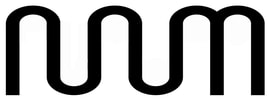A Name with No Edges
by
Cassondra Windwalker
His caseworker trusted faithfully in labels. Naming things, she said, gave them a place, set boundaries. The name she gave this place was transition. But as far as Rolly could tell, only blinding white fog stretched in every direction, without a street-sign or fence post to be seen.
Mama had died while he was inside. They told him afterwards he could’ve requested a furlough, told her good-bye, if only he’d filled out the proper paperwork. Paperwork was confusing, though, and he always missed deadlines somehow, anyway.
He walked to their house to be sure. Maybe they were mistaken. Maybe she’d open the door and draw him into her big-bellied, big-bosomed hug that was a boundary of its own, shutting out all the hate and meanness and ugliness in the world. It was a long walk, but he had no bike.
It had been a bike that put him inside to begin with. He tried to explain he’d only been borrowing it, trying desperately to get to his job at the car wash on time (and he had made it on time, hadn’t he,) that he’d have given it back, but it hadn’t mattered. Inside he’d gone, to hard beds and hard bread and hard eyes staring at him, all the time, under hard white lights.
The man who opened Mama’s door had labels for him, sure enough. No Mama. But someone’s mama came rushing after him, with a bag of leftover pizza and bottled water and cans of ravioli. She was crying, and Rolly didn’t know why. He took her skinny-armed, loose-bosomed hug and stored it up for later. Streets were hug-poor, he suspected.
A man with knives for eyes took the bag, though.
Rolly curled into a doorway and named this place.
Homeless.
He still couldn’t see any boundaries, any end.
Mama had died while he was inside. They told him afterwards he could’ve requested a furlough, told her good-bye, if only he’d filled out the proper paperwork. Paperwork was confusing, though, and he always missed deadlines somehow, anyway.
He walked to their house to be sure. Maybe they were mistaken. Maybe she’d open the door and draw him into her big-bellied, big-bosomed hug that was a boundary of its own, shutting out all the hate and meanness and ugliness in the world. It was a long walk, but he had no bike.
It had been a bike that put him inside to begin with. He tried to explain he’d only been borrowing it, trying desperately to get to his job at the car wash on time (and he had made it on time, hadn’t he,) that he’d have given it back, but it hadn’t mattered. Inside he’d gone, to hard beds and hard bread and hard eyes staring at him, all the time, under hard white lights.
The man who opened Mama’s door had labels for him, sure enough. No Mama. But someone’s mama came rushing after him, with a bag of leftover pizza and bottled water and cans of ravioli. She was crying, and Rolly didn’t know why. He took her skinny-armed, loose-bosomed hug and stored it up for later. Streets were hug-poor, he suspected.
A man with knives for eyes took the bag, though.
Rolly curled into a doorway and named this place.
Homeless.
He still couldn’t see any boundaries, any end.

